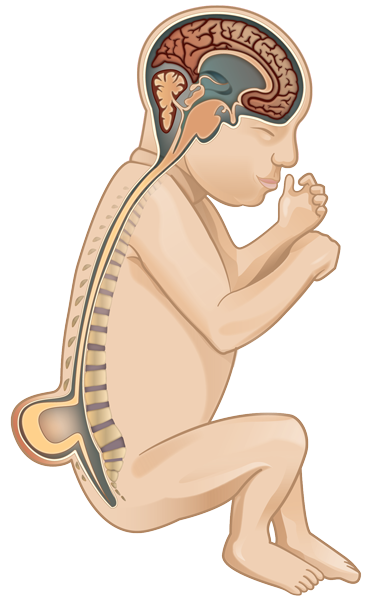09 Jan Planning for a Healthy Baby
Having a healthy baby starts with the mother being healthy too. We recognized the week of January 7-13, 2018 as Folic Acid Awareness Week. One of the most important things a  mother can do to help prevent serious birth defects in her child is to consume enough Folic Acid.
mother can do to help prevent serious birth defects in her child is to consume enough Folic Acid.
What is Folic Acid?
Folic Acid is a B-Vitamin. Folic Acid plays a crucial role in cell growth and development as well as tissue formation.
Why is Folic Acid important?
Folic Acid consumption helps prevent three types of serious birth defects involving the neural tube of the unborn baby. Neural tube defects are birth defects causing incomplete development of the brain and spinal cord. These three neural tube defects are:
1. Spina Bifida: an incomplete closure of the spinal cord and spinal column
2. Anencephaly: severe underdevelopment of the brain
3. Encephalocele: brain tissue protruding out to the skin from an abnormal opening in the skull
How much Folic Acid should I consume?
The Center for Disease Control recommends that all females between the ages of 15-45 years consume 400 micrograms of Folic Acid daily.
Studies have shown that women who consume 400 micrograms of Folic Acid daily before becoming pregnant and during early pregnancy will reduce the risk of their baby being born with a neural tube defect by up to 70%. Most neural tube defects occur during the first month of pregnancy. Since only 50% of all pregnancies are planned, females who could become pregnant should make sure they are receiving enough folic acid.
How do I get enough Folic Acid?
In 1998, the U.S. Food and Drug Administration mandated that Folic Acid be added to enriched grain products such as breakfast cereals, breads, and pastas. Other natural sources include:
• lentils
• dried beans, peas, and nuts
• avocado
• dark green vegetables such as broccoli, spinach, collard or turnip greens, okra, brussels sprouts, and asparagus
• citrus fruit
Eating these foods for most women of child bearing potential is often not enough to reach the recommended daily level. Although vitamin supplements should never replace a well-balanced diet, taking Folic Acid supplements can give your body and your unborn babies body an added boost.
Speak to your doctor about your diet and daily Folic Acid intake to find out if a supplement is needed. If you already have a child with a neural tube defect, then speak to your physician about what should be done before getting pregnant to lower your risk of having another occurrence.
Please take the time this week, January 7-13, 2018 to learn more about Folic Acid Awareness Week.
If you would like more information about gastrointestinal (GI) digestive disorders and nutrition in children, please contact Dr. Mona Dave’s Frisco Office or Request Appointment Here.